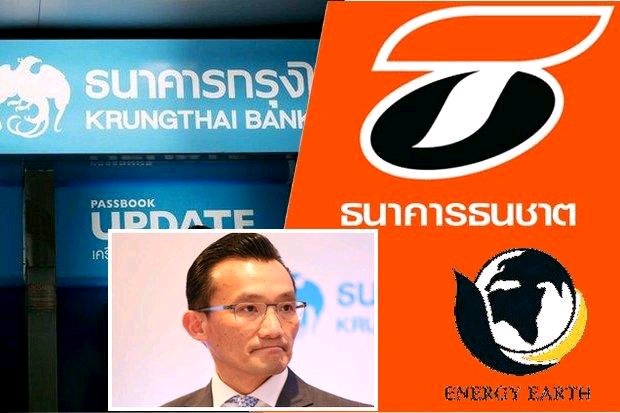
The Bank of Thailand is waiting for a complete report from Krungthai Bank (KTB) on the investigation into loans extended to Energy Earth, including serious allegations against CIMB Thai (CIMBT) chief executive Kittiphun Anutarasoti, before deciding on whether he is eligible to be a bank executive.
KTB has consistently reported on findings regarding its accusation against Mr Kittiphun to the central bank, but the process is not finished, said Ronadol Numnonda, deputy governor of financial institutions stability at the central bank.
KTB's probe accused Mr Kittiphun of misconduct and fraud for his own and others' benefit, resulting in huge damage to KTB from loans extended to Energy Earth when he was a high-ranking executive at the bank overseeing the corporate banking segment.
Following the allegations, Mr Kittiphun took a voluntary leave of absence until the end of March and asked for fairness from the central bank. He disputed the probe, saying he was never notified of the charges, nor was he allowed to clarify his actions to the panel.
KTB president Payong Srivanich has said the allegations against Mr Kittiphun were made to protect the bank's interests.
KTB, Energy Earth's largest creditor, launched a probe into the 12 billion baht granted to the coal miner after it failed to redeem two lots of bills of exchange worth 90 million baht that were due in June 2017. The default had a snowball effect on the coal miner's business operations.
The bank also filed a complaint with the Department of Special Investigation to look into an accusation that Energy Earth might have used a fabricated coal import document to seek a 12-billion-baht loan from the bank.
Mr Ronadol said disciplinary action is not the sole determinant of whether executives of financial institutions are qualified, as other factors must also be taken into account.
According to the Bank of Thailand's criteria, directors and high-ranking executives of financial institutions are prohibited from having characteristics that prevent honesty and integrity or foster a negative reputation.
These prohibited characteristics include having been accused, a grievance filed against them or being prosecuted in any proceedings by the central bank, the Securities and Exchange Commission, or a local or international supervisory agency for fraud or corruption, and any other applicable laws, unless the case has a final judgement of not guilty.
Mr Kittiphun said he has not discussed the matter with CIMBT's board yet, even as the end of his leave of absence approaches.
He said he is likely to extend his leave if he is not cleared of the allegations, to prevent damage to CIMBT's reputation.
"Personally, I want to go back to work," he said. "This also depends on the bank board's decision. If the issue remains unclear, continuing to take leave is the better option."